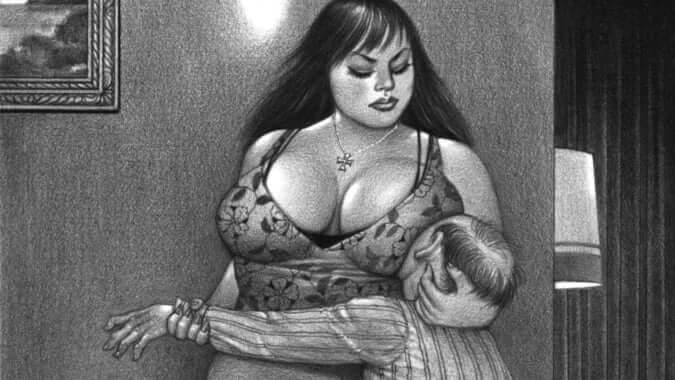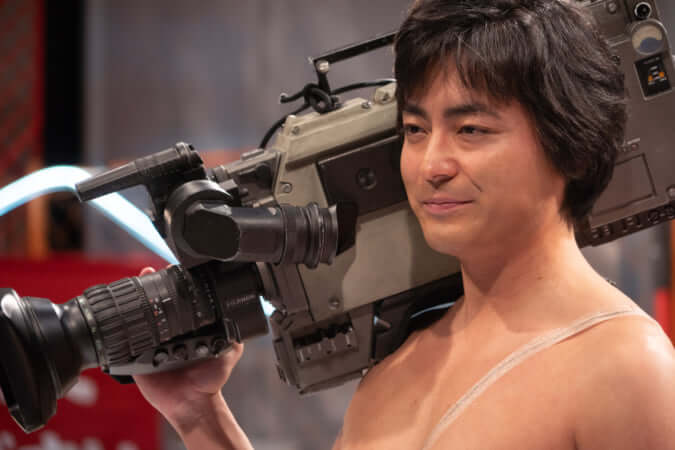Transforming feelings into visual art; quarantine according to Oscar Oiwa
No more trips, no more journeys. Confined to his home, the artist began a series of drawings that retrace his daily life under lockdown.
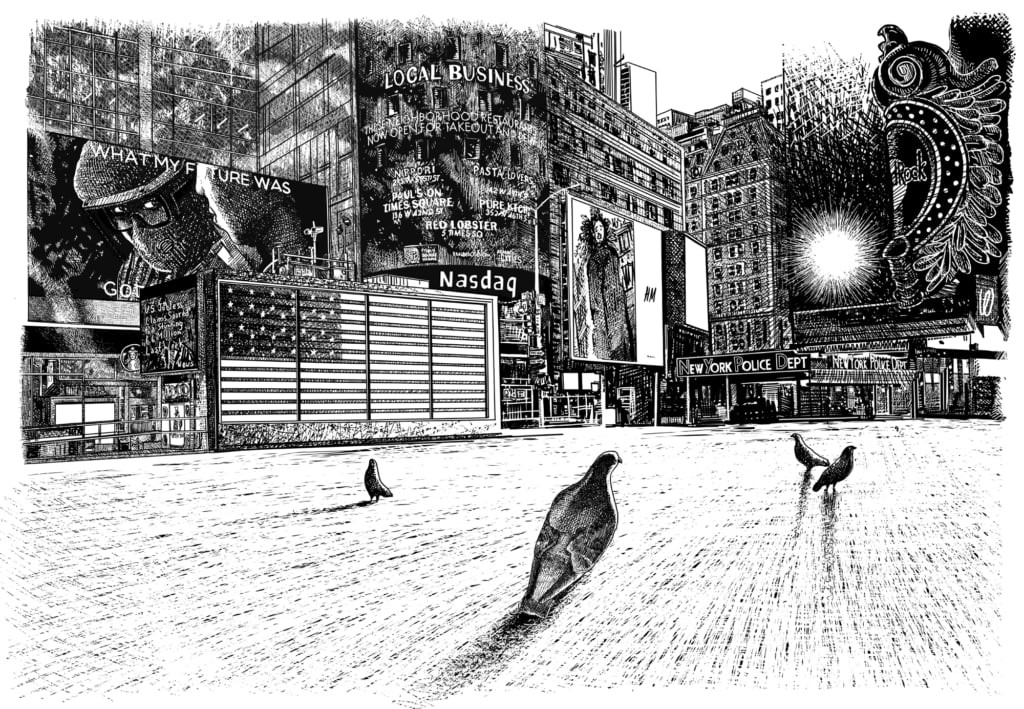
‘Times Square’ by Oscar Oiwa Studio. Image courtesy: © Oscar Oiwa Studio
March 2020, the verdict falls. All of the inhabitants of New York are urged to stay at home to avoid the spread of COVID-19. Deciding to transform this ordeal into a creative resource, Oscar Oiwa started a logbook, Quarantine drawing, metamorphosing his feelings into visual art, day after day. An imaginary and introspective journey drawn in black and white where the artist calls forth all of his own cultures.
Born to Japanese parents in São Paulo, Oscar Oiwa graduated from the School of Architecture and Urbanism in 1989. In 1991, he took part in the 21st biennale of São Paulo, before living in Tokyo for 12 years, and then finally establishing himself in Manhattan, where he has lived ever since. Each year, he goes back to Japan for at least a month to maintain his roots.
Spotlight on inconsistencies
Returning, in his series Quarantine drawing, to the most purified expression of art—drawing—Oscar Oiwa pushes the limits within the medium via the digital. Pencil and paper become stylus and pad, underlining in passing the importance of screens and technology during isolation. In black and white, his post-apocalyptic-looking universe unfolds at every stage of lockdown. In this urban landscape, animals evolve at the heart of a new society, between metaphor and amplification.
Deer roam in the middle of 9th Avenue in New York City in search of food, sadly echoing those without shelter, who are now more lonely than ever. Pigeons have taken over Times Square, in front of the huge advertising billboards, still illuminated. An incredibly large crab, straight from Osaka, even pays homage to the city for its street food eaten on the go. In this timeless context, it is finally possible to take a step back from our usual living conditions. Ecological, agro-alimentary, industrial, and capitalist deviations are more visible than ever. Drawing is a way of atoning for these contradictions, of denouncing them publicly, as much as it is a method of personal maturation.
An everyday without borders
When Oscar Oiwa began his series Quarantine drawing, his various cultural references, with their diverse codes and histories, came to nourish his drawings. Today’s excess of food is paralleled with the post-WW2 scarcity that his father lived through in Japan. The contemporary social crisis is compared with the Great Depression of the 30s in the US, as photographed by Margaret Bourke-White. The chaotic handling of the epidemic in Brazil becomes a deathly reinterpretation of Pedro Américo’s 1888 work on the declaration of Brazilian independence, Independence or Death.
‘Despite everything that distinguishes us from one another, the world functions as one. We are trapped on our little planet […] and consequently, we are all, as human beings, similar in many ways.’ Individualism ends with this injunction explained to us by the artist. The sentiments experienced by him during quarantine may well extend to many others: ‘if the public see these drawings at some point, they may see their own experience inside the works’, he attests. This unifying discourse has been incarnated in his works for years. In 2019, in his exhibition Rio, Tokyo, Paris: Cities and Games at the Maison de la Culture du Japon in Paris, he presented a whole series of mural drawings of the three cities in order to provoke discussion and interrogate, once again, the world today.
Quarantine drawing (2020), a series by Oscar Oiwa, is available on his website.
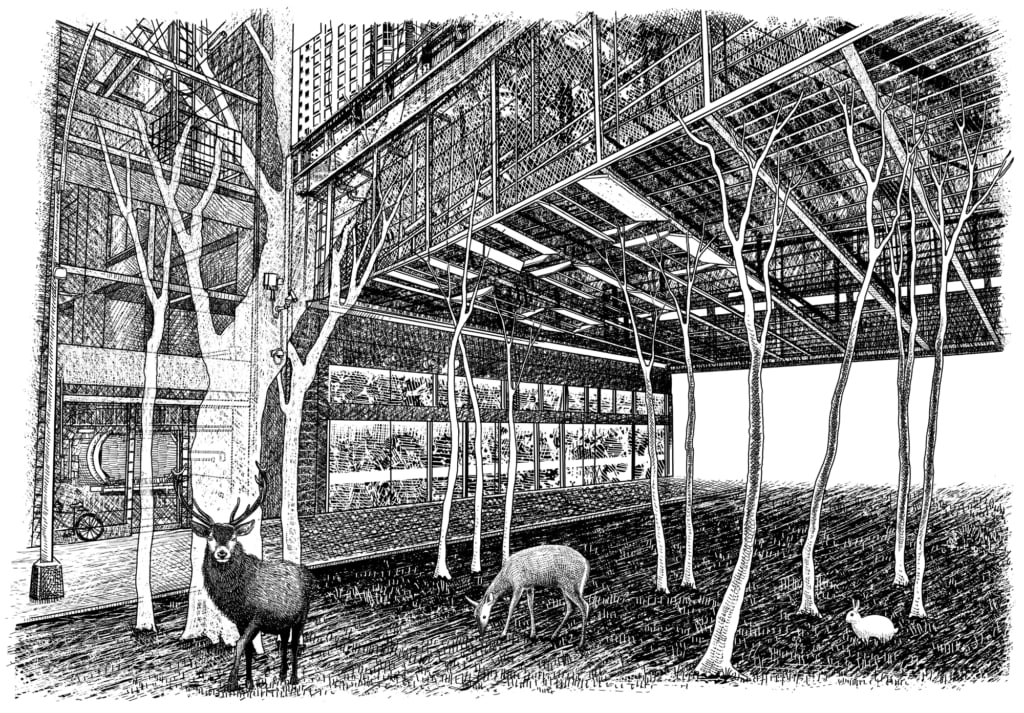
‘9th Avenue, New York’ by Oscar Oiwa Studio. Image courtesy: © Oscar Oiwa Studio
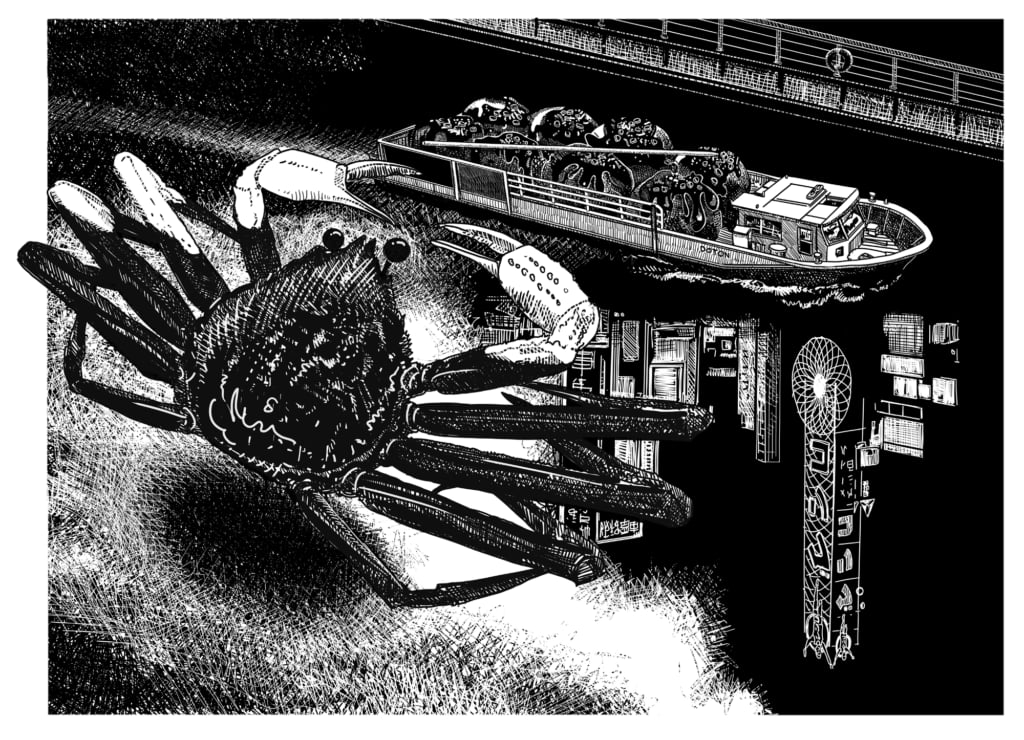
‘Takoyaki, Osaka’ by Oscar Oiwa Studio. Image courtesy: © Oscar Oiwa Studio
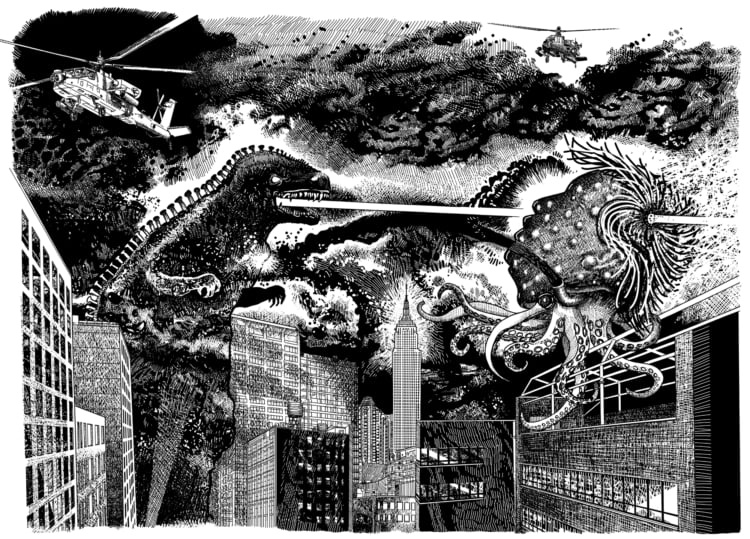
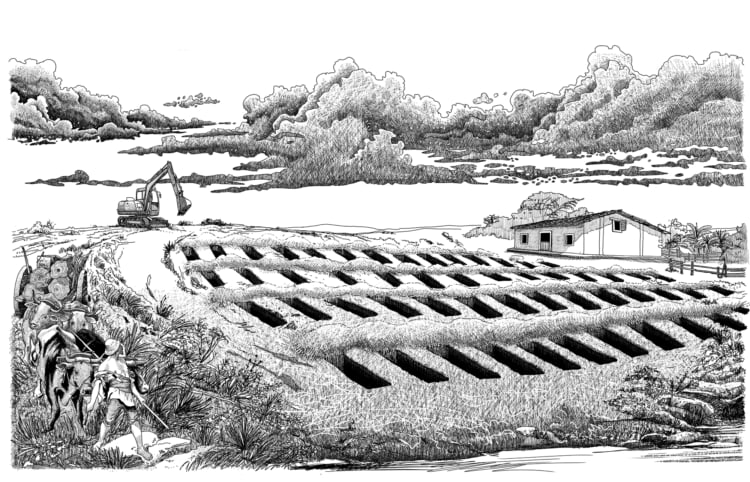
‘View from my window’ and ‘Independência ou Morte’ by Oscar Oiwa Studio. Image courtesy: © Oscar Oiwa Studio
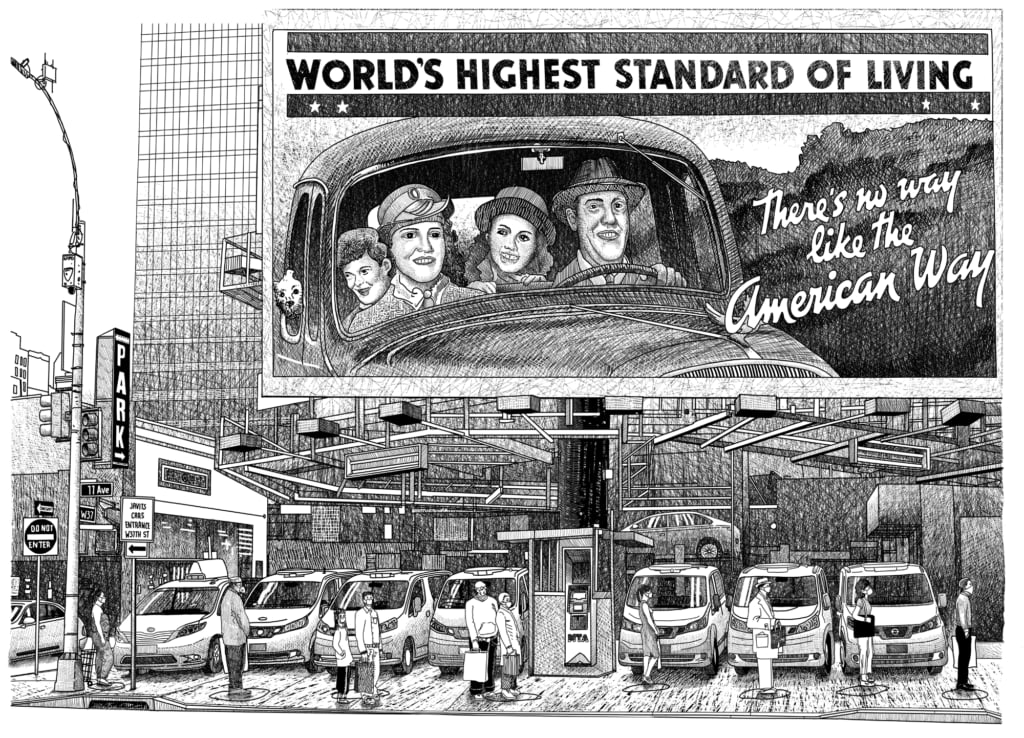
‘The Great Depression’ by Oscar Oiwa Studio. Image courtesy: © Oscar Oiwa Studio
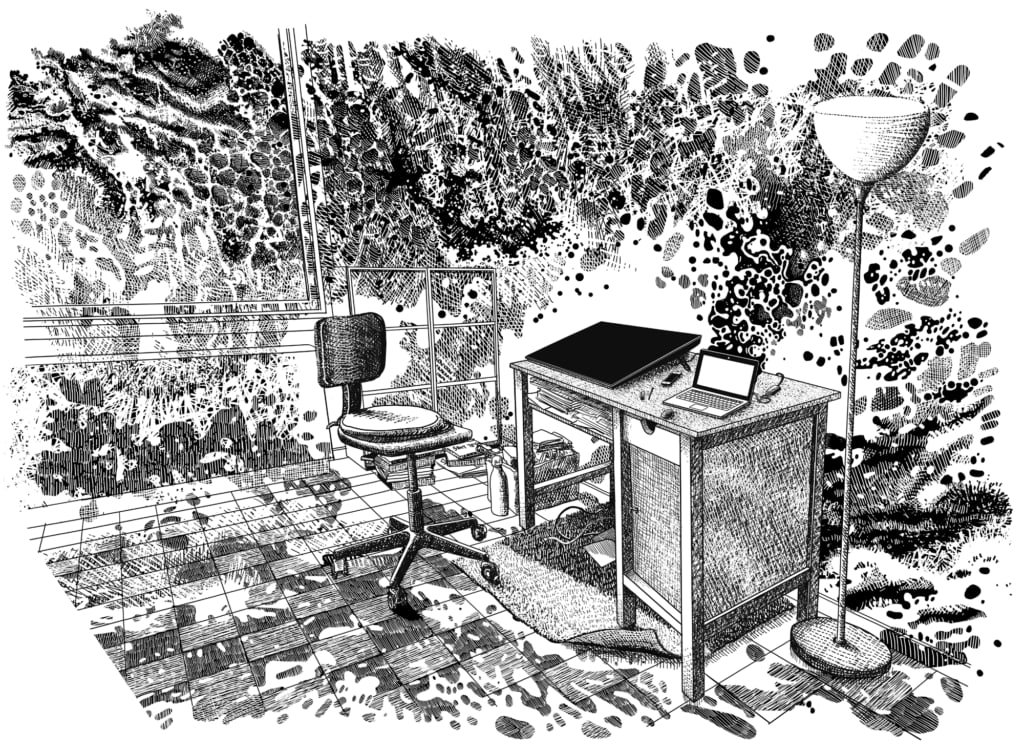
‘My Desk by Oscar Oiwa Studio’ Image courtesy: © Oscar Oiwa Studio
TRENDING
-
Ishiuchi Miyako, A Singular Perspective on Women
Recipient of the 2024 Women in Motion Award, the photographer creates intimate portraits of women through the objects they left behind.

-
Recipe for Ichiraku Ramen from ‘Naruto’ by Danielle Baghernejad
Taken from the popular manga with the character of the same name who loves ramen, this dish is named after the hero's favourite restaurant.

-
Namio Harukawa, Master of Japanese SM Art
'Garden of Domina' offers a dive into the world of an icon of ‘oshiri’, whose work has now reached a global audience.

-
The Tattoos that Marked the Criminals of the Edo Period
Traditional tattoos were strong signifiers; murderers had head tattoos, while theft might result in an arm tattoo.

-
The Emperor of Japanese Porn is Now the Star of a Netflix Series
Deliciously funny, The Naked Director especially succeeds in reviving the atmosphere that was so characteristic of 1980s Japan.



